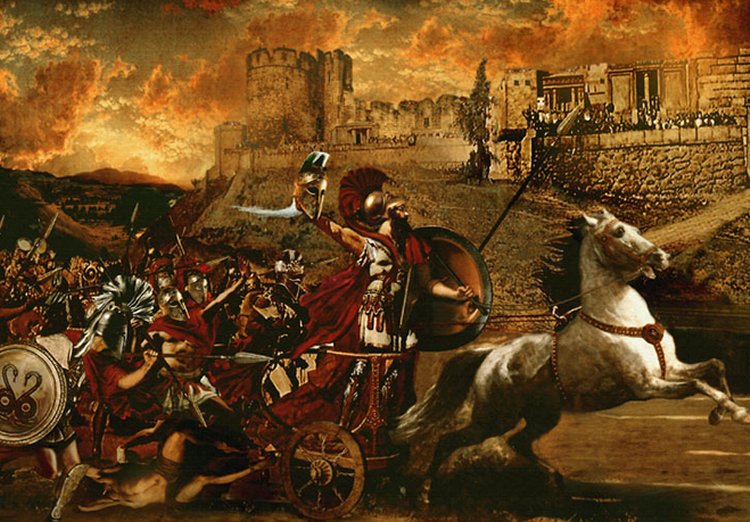Achilles – Son Of King Peleus And Leader Of The Nereids
A. Sutherland - AncientPages.com - The epic poem, The Iliad, was written by Homer sometime in the 8th century BC. It recounts some of the most important events of the final weeks of the Trojan War and the Greek siege of the city of Troy.
Achilles Triumphant (The Iliad) illustration by Howard David Johnson.
One of the central figures of the epic is Achilles, who traveled to Troy to bring Helen back to her husband, King Menelaus of Sparta, Agamemnon's younger brother. Achilles was the son of King Peleus of the Myrmidons and Thetis, the leader of the 50 Nereids.
Both Zeus and Poseidon desired the beautiful sea goddess but were warned by the Titan Prometheus that any male child born to her would become more significant than his father. As such, both the brothers ceased pursuing her and convinced Peleus to marry her instead.
When Achilles was born, Thetis wanted to gift him immortality. She took him to the Underworld and, holding him by the ankle, dipped him in the waters of the River Styx. However, she was unaware that the only dead spot on his entire body was the one ankle she had held when she submerged him in the river.
Another version tells that to make Achilles immortal, she smothered his body with ambrosia and then placed him on top of a fire to burn away the mortal part of his body. As she was doing this, however, Peleus interrupted her, and enraged, she left them both with the process unfinished.
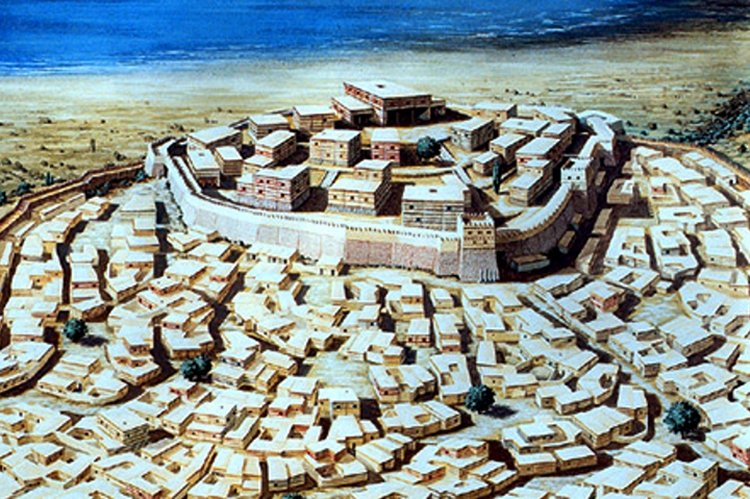 Reconstruction of Troy VIh/VIi (Wilusa of the Hittite text. Credits: Copyright by Christoph Haussner Munich
Reconstruction of Troy VIh/VIi (Wilusa of the Hittite text. Credits: Copyright by Christoph Haussner Munich
When the Trojan War began, Achilles was given the command of fifty ships, each containing 50 men. He engaged the services of five commanders-in-chief - Menesthius, Eudorus, Peisander, Phoenix, and Alcimedon. After they set sail for Troy, they accidentally landed in Mysia, where King Telephus ruled.
Telephus went to Achilles and was healed in exchange for directions to Troy.
A fight broke out with Achilles wounding Telephus, but the injury wouldn't heal, so Telephus consulted an oracle. He was told that only the person who caused the wound would be able to cure it.
The Iliad begins the narrative of the Trojan War when King Agamemnon attained a woman named Chryseis and enslaved her. Her father was a priest of the god Apollo, and she pleaded with him to aid his cause. Upon hearing this, Apollo sends a plague to curse the Greeks. Calchas informs Agamemnon of what caused this curse.
Reluctantly, Agamemnon agrees to give up Chryseis but only on the condition that Achilles hands his woman Briseis over to him. Achilles is outraged at the lack of respect and withdraws from the battle.
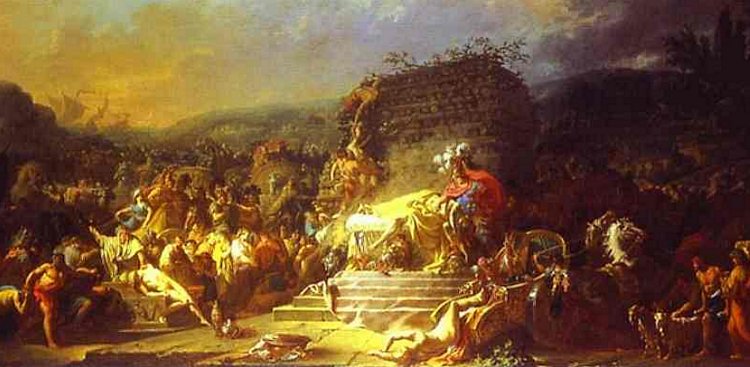 The Funeral of Patroclus - Jacques-Louis David
The Funeral of Patroclus - Jacques-Louis David
He visits with his mother, Thetis, and convinces her to ask Zeus to aid the Trojans so that he may demonstrate his worth in action once more. After this, the Trojans can push the Greeks back to shore.
Here, Patroclus, the friend of Achilles, puts on his armor without him knowing and commands the Myrmidons in a battle against the Trojans. However, he is slain by Hector, one of King Priam's sons. Achilles is enraged at Patroculus's death; he rejoins the Greeks on the battlefield and kills Hector. Subsequently, he ties Hector's body to his chariot throughout the funeral games held for his friend. As he lies about dying, Hector tells of how Achilles will die.
Hector's brother, Paris, shoots at the Greek hero, and the poisoned arrow lands in Achilles' one dead spot – his ankle.
According to other accounts, Apollo guided the arrow toward the Achilles heel. After Troy had fallen to the Greeks, his body was cremated and merged with the ashes of Patroclus.
Written by – A. Sutherland AncientPages.com Staff Writer
Updated on October 18, 2022
Copyright © AncientPages.com All rights reserved. This material may not be published, broadcast, rewritten or redistributed in whole or part without the express written permission of AncientPages.com
Expand for referencesSpara
Spara
More From Ancient Pages
-
 Mysterious 210,000-Year-Old Apidima Skull Could Re-Write Human History
Archaeology | Jul 11, 2019
Mysterious 210,000-Year-Old Apidima Skull Could Re-Write Human History
Archaeology | Jul 11, 2019 -
 Hidden Role Of The Milky Way And Egyptian Goddess Nut Examined
Myths & Legends | Apr 15, 2024
Hidden Role Of The Milky Way And Egyptian Goddess Nut Examined
Myths & Legends | Apr 15, 2024 -
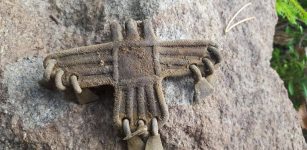 Unique Ancient Three-Headed Eagle Pendant Discovered In Finland: A Symbol Of Three Different Human Souls
Ancient Symbols | May 6, 2016
Unique Ancient Three-Headed Eagle Pendant Discovered In Finland: A Symbol Of Three Different Human Souls
Ancient Symbols | May 6, 2016 -
 Find Out Which Indigenous Lands You Live On With This Interactive Map Covering The Whole World
Places | Jan 17, 2023
Find Out Which Indigenous Lands You Live On With This Interactive Map Covering The Whole World
Places | Jan 17, 2023 -
 Was Organized Society A Disruptive Or Calming Force In Ancient Andes Populations?
Archaeology | Oct 24, 2024
Was Organized Society A Disruptive Or Calming Force In Ancient Andes Populations?
Archaeology | Oct 24, 2024 -
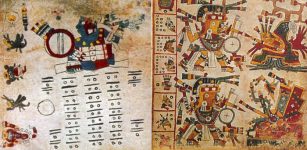 Ancient Codex Cospi: Intriguing Pre-Columbian Ritual Manuscript From Central Mexico
Featured Stories | Aug 10, 2017
Ancient Codex Cospi: Intriguing Pre-Columbian Ritual Manuscript From Central Mexico
Featured Stories | Aug 10, 2017 -
 2,000-Year-Old Completely Preserved Shipwreck With Amphorae Found Near Šćedro Island
Archaeology | May 14, 2024
2,000-Year-Old Completely Preserved Shipwreck With Amphorae Found Near Šćedro Island
Archaeology | May 14, 2024 -
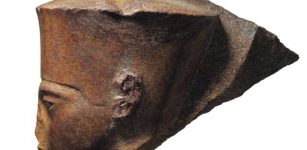 3,000-Year-Old Tutankhamun’s Head Sculpture Is Expected To Be Sold On Thursday In London
Archaeology | Jul 2, 2019
3,000-Year-Old Tutankhamun’s Head Sculpture Is Expected To Be Sold On Thursday In London
Archaeology | Jul 2, 2019 -
 What Does The Brain Of The Homo Erectus Fossil With The Lowest Cranial Capacity Tell About Evolution?
Archaeology | Mar 2, 2023
What Does The Brain Of The Homo Erectus Fossil With The Lowest Cranial Capacity Tell About Evolution?
Archaeology | Mar 2, 2023 -
 Mysterious Tunnel Found Under Saxon Palace Ruins In Warsaw, Poland
Archaeology | Sep 14, 2023
Mysterious Tunnel Found Under Saxon Palace Ruins In Warsaw, Poland
Archaeology | Sep 14, 2023 -
 Bristol Academic Cracks Voynich Code – Century-Old Mystery Solved
Archaeology | May 15, 2019
Bristol Academic Cracks Voynich Code – Century-Old Mystery Solved
Archaeology | May 15, 2019 -
 The Inca Empire Was Powerful And Well-Organized – Why Were They So Successful?
Ancient History Facts | Sep 21, 2020
The Inca Empire Was Powerful And Well-Organized – Why Were They So Successful?
Ancient History Facts | Sep 21, 2020 -
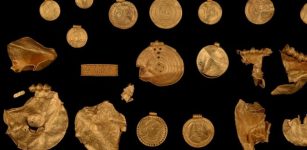 3D Scan Will Uncover Secrets Of The Magnificent Vindelev Gold Treasure
Archaeology | Oct 25, 2023
3D Scan Will Uncover Secrets Of The Magnificent Vindelev Gold Treasure
Archaeology | Oct 25, 2023 -
 Massive Roman-Era Column Base Of Limestone Unearthed In The Foothills Of Mount Hermon, Golan Heights
Archaeology | Oct 29, 2022
Massive Roman-Era Column Base Of Limestone Unearthed In The Foothills Of Mount Hermon, Golan Heights
Archaeology | Oct 29, 2022 -
 LIDAR Discovery Of Ancient City With 10,000 Mounds On The Pacific Island Of Tongatapu
Archaeology | Apr 16, 2024
LIDAR Discovery Of Ancient City With 10,000 Mounds On The Pacific Island Of Tongatapu
Archaeology | Apr 16, 2024 -
 Long-Lost Island Documented On Ancient Maps – Erased From History Or Misidentified?
Ancient Mysteries | Dec 14, 2019
Long-Lost Island Documented On Ancient Maps – Erased From History Or Misidentified?
Ancient Mysteries | Dec 14, 2019 -
 Scientists Question Whether Meat Eating Really Changed Human Evolution
Archaeology | Jan 25, 2022
Scientists Question Whether Meat Eating Really Changed Human Evolution
Archaeology | Jan 25, 2022 -
 Delatores – Who Were The Professional Gossip Collectors In Ancient Rome?
Featured Stories | Mar 21, 2025
Delatores – Who Were The Professional Gossip Collectors In Ancient Rome?
Featured Stories | Mar 21, 2025 -
 Satellite Images Reveal Huge 4000-Year-Old Military Network In Syria
Archaeology | Dec 23, 2017
Satellite Images Reveal Huge 4000-Year-Old Military Network In Syria
Archaeology | Dec 23, 2017 -
 Women’s March On Versailles: One Of The Most Significant Events Of The French Revolution
Ancient History Facts | Oct 11, 2018
Women’s March On Versailles: One Of The Most Significant Events Of The French Revolution
Ancient History Facts | Oct 11, 2018

